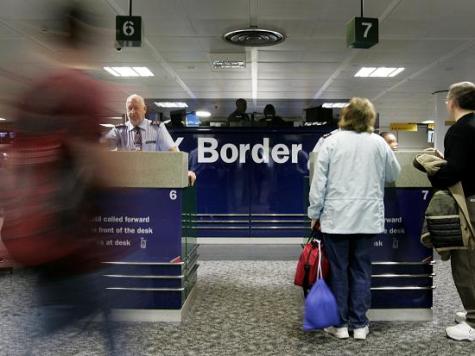The number of Eastern Europeans now living in the UK is twice the size of the population of Leeds. 1.27 million foreign nationals migrated to Britain following the enlargement of the EU in 2004 which gave them free movement across the continent, according to The Times.
Despite warnings, the government said that only an estimated 13,000 people would come when the group opened up to ten new countries, including eight from the former Soviet Union.
Instead the country witnessed the biggest flow of people in British history and made immigration a political hot potato many parties could not deal with.
from the Organisation for Economic Co-Operation and Development shows that of the five million foreign nationals living in this country, over a quarter are from the enlargement countries.
And of the 1.27 million, half of those come from Poland alone, making up almost 14 per cent of all foreigners living in Britain.
The others come from Lithuania, Latvia, Slovenia, Slovakia, Czech Republic, Estonia and Hungary which joined in 2004, followed by Bulgaria and Romania in 2007.
Following the disastrous government predictions – which were, in fact, based on a model for Germany, transition arrangements were put in place for migrants from the latter countries, although self employed workers could get through this loophole.
The total number of foreign citizens living in the UK has risen by more than 3 per cent to 4.9 million last year, or 7.9 per cent of the whole UK population.
The OECD report said that in 2013 a record 2.66m foreign nationals – migrants who have not been given UK citizenship – were working in the UK. And a third of those who moved to this country live in London.
But it also shows that, despite UK concerns, most EU migrants heading to other member states under free movement rules actually go to Germany. Almost 30 per cent went to the European power house compared to seven per cent to Britain.
But opponents of free movement said that Germany was a significantly bigger country with a lower population density, at only 593 people per square mile compared to 660 for the UK.
And there is an upward trend in numbers moving to Britain over the last few years, probably brought about by the eurozone crisis which has seen poverty and mass unemployment as well as the lifting of transitional arrangements.
David Cameron unveiled plans last week, saying he wanted to make the UK ‘less attractive’ to EU migrants by imposing restrictions on what benefits they would be entitled to.
His proposals included barring EU jobseekers without an offer of employment from the new universal credit and a requirement to leave if they do not find work within six months.
But they will still be allowed to claim tax credits and child benefit which many employers use as an excuse to only pay the minimum wage for many low skilled jobs. In areas like retail and hospitality, the minimum wage has, in reality, become the maximum wage.

COMMENTS
Please let us know if you're having issues with commenting.